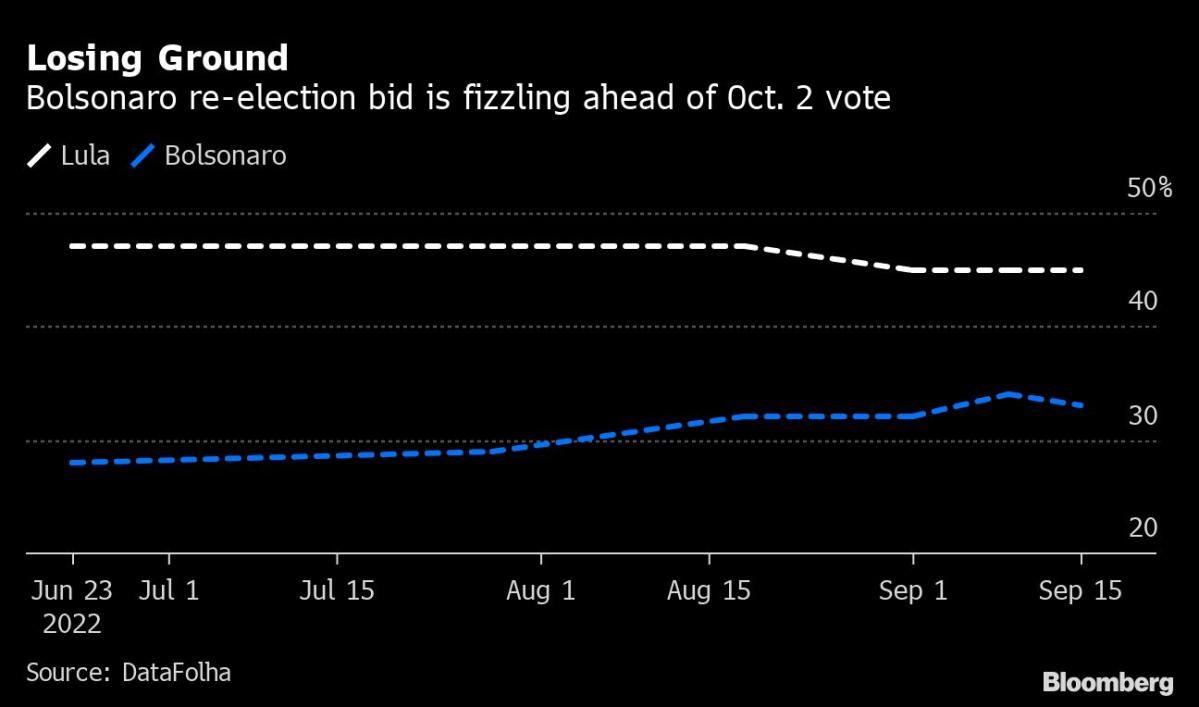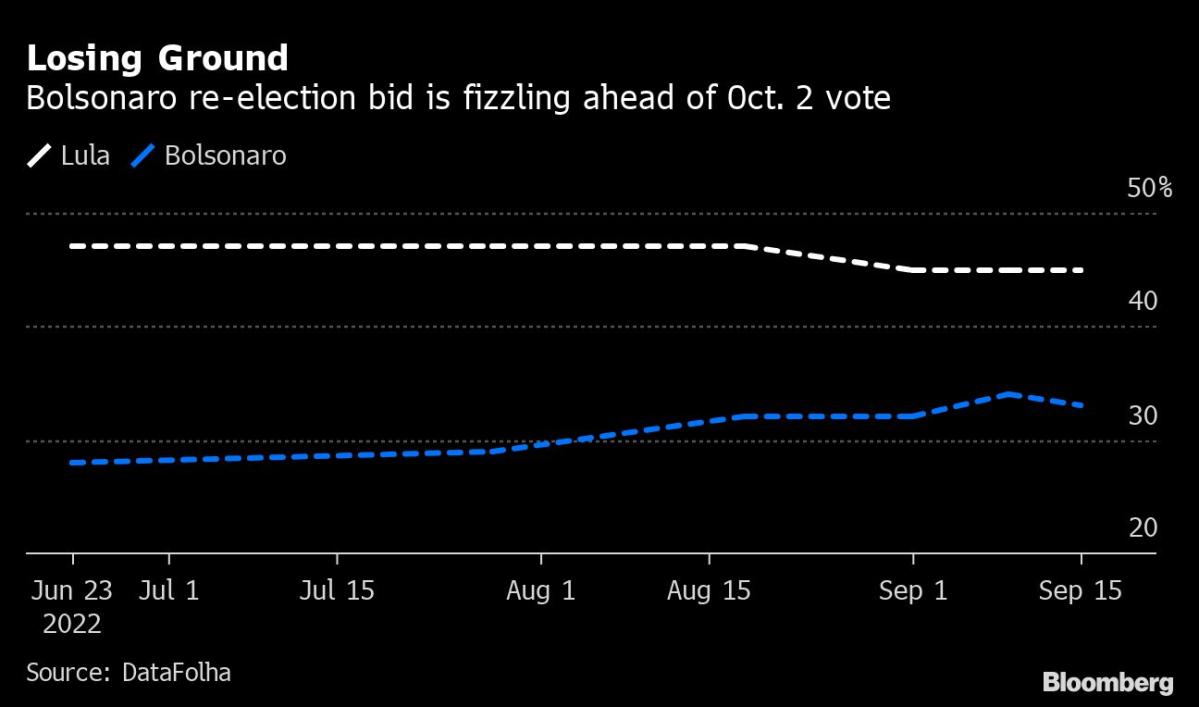
(Bloomberg) — President Jair Bolsonaro’s late-campaign push looks to have fizzled for now, apparently leaving him a bit further behind challenger Luiz Inacio Lula da Silva just two weeks before Brazilians cast their ballots, according to the latest DataFolha poll.
Most Read from Bloomberg
Lula would take 45% of the first-round vote, holding firm from a week ago. Bolsonaro would win 33%, down a percentage point but the movement fell within the survey’s two percentage-point margin of error.
Over the past few months, the incumbent has slowly made up ground on Lula, who’s been the heavy-favorite since Brazil’s top court last year tossed out corruption convictions against him. But the latest data from DataFolha, one of the country’s most-trusted pollsters, showed those gains grinding to a halt.
The top contenders are currently barnstorming the nation and trying to peel voters off of one another ahead of the first-round vote Oct. 2.
Last week, Bolsonaro drew tens of thousands of his followers to the streets of Brazil’s biggest cities for Independence Day celebrations-turned-political rallies. The often-crass president has since toned down his rhetoric in a bid to win over moderates.
For his part, Lula has tried to unite opposition forces, notably mending relations this week with his one-time environment minister and later political opponent, Marina Silva.
A candidate needs to secure over 50% of the vote to win outright, otherwise the race goes to a Oct. 30 run-off.
Polls are widely divergent on just how large Lula’s lead is in the first round, ranging from six to 15 percentage points.
Analysts point to differences in methodology — whether interviews were conducted in-person, over the phone or online — to account for some of the variation. But the main factor, they say, is that Brazil has not conducted a census since 2010.
That means pollsters are left using estimates to come up with representative samples, such as religion and household income, that best reflect the electorate. The lack of official data particularly affects gauges of the poorest Brazilians, who tend to favor Lula. So polls including a bigger representation of voters who fall in the lowest income bracket could ultimately give him a bigger advantage.
DataFolha interviewed 5,926 people in person throughout the country between Sept. 13 and 15.
Most Read from Bloomberg Businessweek
©2022 Bloomberg L.P.




